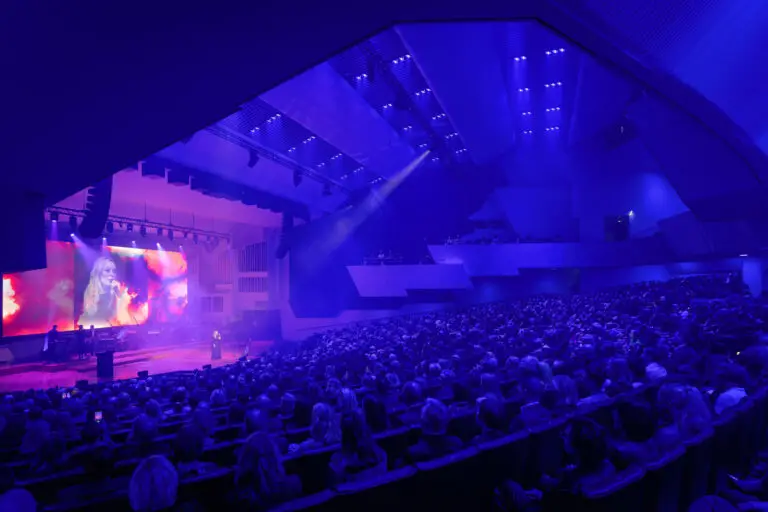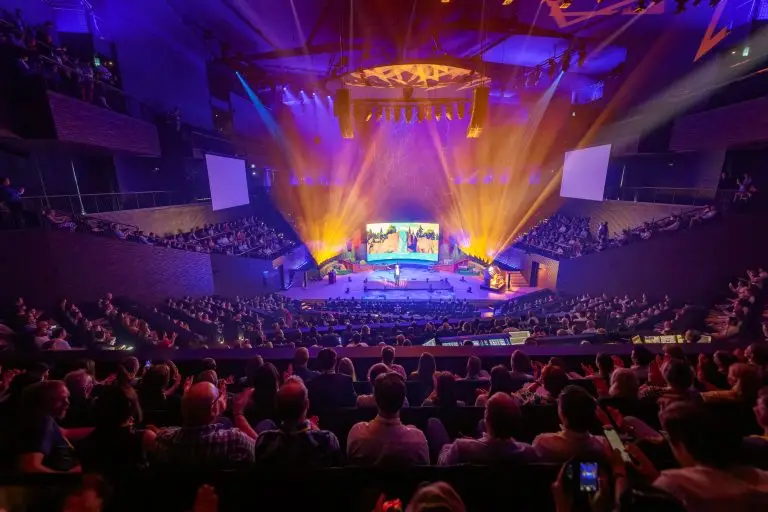In this world, only two things are constant: people and change.
While a tad cliché, this really sums up why companies that want to be successful have to organise events for their key stakeholders.
”No matter how digital the world gets, our need to meet and engage with other people will never go away. On the contrary, all companies share a need to build, maintain and consolidate relations with key people”, says Woltti Group COO Jyrki Aittola.
The digital world is the driver of new business now. The flipside of this is that spreading false information is cheaper and more efficient than ever before. It also erodes confidence in honest information: more and more people are questioning the communications of governments and companies.
”All business is based on trust, and the most efficient way of building it is meeting someone face to face.”
Well-organised events make brands stronger
Having key people convene for a meaningful and well-organised event can be like a new business card, and happy participants spread the word far and wide. A well-organised event brings many benefits to a company.
- It helps create new business relationships and maintain the old. Shared experiences take the customer story forward.
- It communicates the company’s values and attitudes.
- It reinforces the brand image and trust in the brand. By organising a meaningful event, you can put your money where your mouth is.
- It gives the company the undivided attention of a great number of important people for hours. That generates a lot of leads and contact opportunities for salespeople.
- It builds new contacts between the company’s customers, also reinforcing the company’s own business network.
Events are efficient sales channels
From a marketing standpoint, company events are a part of marketing communications just as much as newsletters, social media campaigns, TV commercials or newspaper ads. Like any other form of communication, events also compete for people’s time. That’s why a crucial part of event design is making sure that the invitees will genuinely feel that what they see and hear will help them.
”Compared to other communications channels, events have the advantages of duration and interactivity. An event is also experienced with all of the senses, which is something that cannot be said for other communications channels.”
In other words, there are plenty of points of contact, if you only know how to use them. In practice, this means that your people have to look after the guests actively.
”Having your salespeople laugh around a glass of wine by themselves just won’t cut it”, Aittola says.
Events pay for themselves
Holding an event costs money. But it also pays for itself many times over: nothing generates sales contacts like an event. To meet 20 customers, a salesperson has to spend days making appointments, going to them and meeting the people. At a well-designed event, they can meet the same number of people on the same day in one place. Even though the one-off investment is larger, the overall sales costs are actually lower.
”Business meetings have their own routine and motions: you make the appointment, talk about the weather, get to the point and wind down. At an event, you can break the mould and get more out of the other person.”
Match your guests to your purpose
On an individual level, the greatest power of events is in building trust and consolidating relationships. On the company level, this reflects directly on business goals. Even the most charming spectacle put on by a company serves a strategic purpose. Your events have to support your goals, and you need to draw up the guest list accordingly.
”But events are not just about closing deals in the short term, they are about building long-term success by maintaining and consolidating relationships. Trust is vital for all business, which is why you need to invest in it.”
Want to know more about creating human contact? Contact us: jyrki.aittola@wolttigroup.fi


